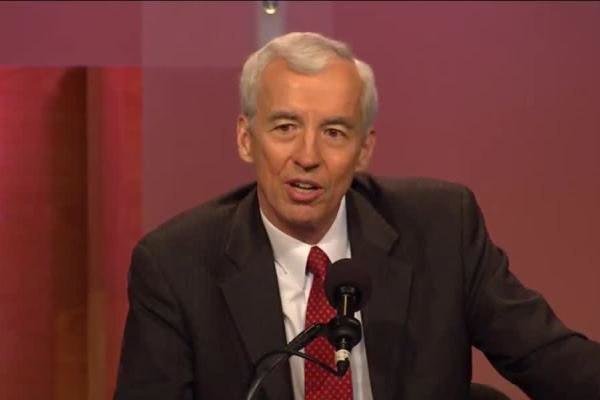Ex-CIA analyst suggests PGCC talks may resolve crisis

TEHRAN – Professor Paul Pillar, who was a CIA intelligence analyst for 28 years, tells the Tehran Times that “The United States not only wants to maintain friendly relations with both sides in the PGCC dispute but also has important military and security cooperation with each side.”
Pillar also says: “So far the United States has not suffered more specific losses to its own interests and in some respects has gained, in the form of concessions, that Qatar has granted to it in the form of arms purchases and expanded base rights.”
“Cooler heads in Riyadh and the other capitals concerned probably are already realizing that Qatar is not going to cave in to pressure as easily as might have been thought a few months ago,” Pillar tells the Tehran Times.
Following is the text of the interview:
Q: A summit with participation of the Emir of Qatar, crown prince of Saudi Arabia and crown prince of the UAE will be held in the United States in May on the Qatar crisis. Are we looking at the end of dispute in Qatar with some of the Persian Gulf Arab states?
A: The scheduled meeting would be an obvious occasion for trying to make major progress in resolving the dispute, and preferably for resolving it altogether. The Trump administration would like nothing better than to be able to announce, after a meeting on its own territory, that it had mediated a resolution of this conflict among the Persian Gulf monarchies. Doing so would burnish Mr. Trump's self-promoted image as a "deal-maker" in addition to eliminating other problems that the conflict has caused for the United States. The United States has leverage it could use with both sides of the dispute, and it probably will attempt to use more of it as the meeting approaches. This does not necessarily mean, however, that a U.S. attempt to resolve the conflict will succeed.
Q: US Secretary of State Tillerson has said that the negative consequences of crisis in the Persian Gulf region are not just limited to the Arab countries but they will also have impacts on the United States. What kind of losses is the United States facing?
A: The losses are not direct losses for the United States in terms of money or business or basing rights. Rather, the conflict has posed the same sort of problem that always arises when the United States seeks good relations with two sets of friends but the friends are feuding with each other. Any act of friendship toward one side is seen by the other side as unfriendly. A similar complicated situation has existed for many years in U.S. relations with Pakistan and India. The United States not only wants to maintain friendly relations with both sides in the GCC dispute but also has important military and security cooperation with each side. So far the United States has not suffered more specific losses to its own interests and in some respects has gained, in the form of concessions, that Qatar has granted to it in the form of arms purchases and expanded base rights.
Q: Qatari Foreign Minister Mohammed bin Abdul Rahman Al Thani has said that Qatar is ready to attend the meeting. But he argued that Doha is not willing to accept the announced conditions and also demanded resolution of the crisis on the basis of equality between countries. Do you believe the crisis will be solved?
A: It is resolvable, but each side will have to back down some and do so in a way that will enable the other side to save face and not have to admit defeat. Most of the backing down will have to be done by the Saudi-led side. The demands that were made earlier on Qatar include ones that are extreme and cannot reasonably be met. Such demands will have to be quietly dropped. Cooler heads in Riyadh and the other capitals concerned probably are already realizing that Qatar is not going to cave in to pressure as easily as might have been thought a few months ago. Internal politics in Saudi Arabia, however, and especially the efforts by the crown prince to consolidate his power, may get in the way of any backing off from the earlier demands.
Q: Which of the 13 terms and conditions announced by Saudi Arabia and its allies might be negated?
A: A few of the demands are relatively low-cost ones on which Qatar could make some concessions and the Saudi side could claim a victory of sorts. These demands include ones about the handling of fugitives and relations with opposition movements in the other PGCC countries, as well as a general pledge of non-interference in the other states' internal affairs. It would be much harder for Qatar to concede anything regarding the nature of its relations with Iran, Turkey, or other foreign countries. Qatar probably also will continue to resist demands to shut down Qatar-based news organizations, although the government always could quietly influence the nature of the news coverage in ways that would be less likely to anger its neighbors.
Leave a Comment